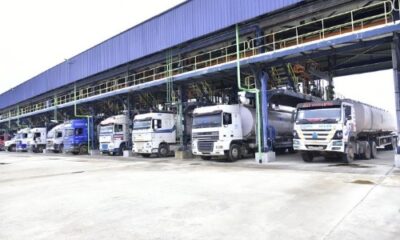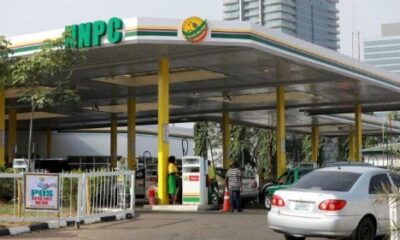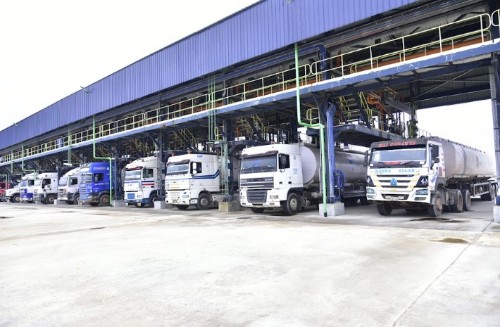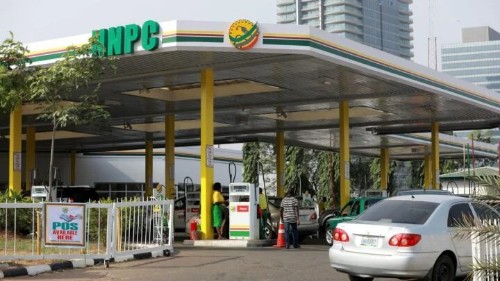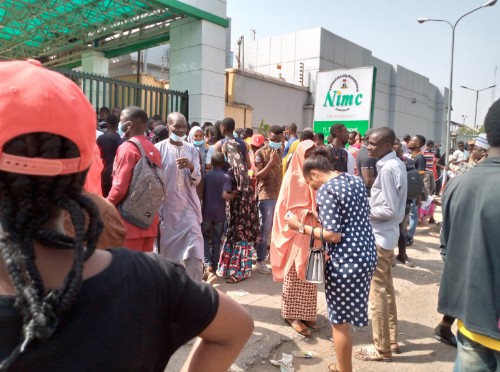The Federal Government has declared a state of emergency at Onne Port, Rivers State, due to repeated incidents of hazardous cargo imports, including arms and ammunition.
Comptroller-General of Customs, Bashir Adeniyi, announced: “The government is immediately implementing emergency protocols at Onne Port for the next three months.”
These protocols include: “thorough examinations of all suspected containers in the premises.”
Adeniyi expressed concern during a press conference: “The recurring incidents pose a threat to national security.”
He noted: “The health of citizens… is increasingly being used as a destination for dangerous and illicit cargo, a disturbing trend.”
The customs boss stated, “Earlier today, I joined numerous stakeholders to take a significant step towards the cause of trade facilitation through the inauguration of upgraded facilities provided by the West Africa Container Terminal, Onne.
“As I express delight that trade facilitation is getting traction in Onne Port, I cannot help but call your attention to a grave concern. This has to do with the repeated incidents of national security breaches unfolding in Onne Port. I appreciate your presence, as we all have a shared responsibility in safeguarding our national security.
“As we are all aware, the policy thrust of Mr President supports the re-energising of our business environment to drive faster import clearance and grow our capacity for exports, Our emphasis has been to promote initiatives that speak to Trade facilitation and economic development.
“It is a matter of regret that criminal elements in the international supply chain are exploiting our pro-trade stance to commit atrocities bordering on national security breaches.”
Continuing, he said, “The attempts to test our will through the importation of dangerous cargo through this port has necessitated the declaration of a state of emergency in Onne Port, coming on the heels of a seizure of a huge cache of arms a couple of months ago.
“It is disheartening that perpetrators have not backed down on their illegal acts. Recent intelligence and seizures have revealed a disturbing trend; Onne Port is increasingly being used as a destination for dangerous and illicit cargo. The scale and nature of these illegal importations pose a significant threat to our national security and the health of our citizens.
“Today, we are here to showcase yet another series of significant seizures made by the diligent officers of the Area 2 Command. On display are twelve containers of illicit goods intercepted through a combination of intelligence gathering, inter-agency collaboration, and meticulous physical examination.
“Seizures on Display: One (1) x 40-feet container: Containing 4,800 pairs of military/paramilitary camouflage rain boots and 67,320 pairs of various rubber footwear, with a Duty Paid Value (DPV) of N923,040,000. Three (3) x 40-feet containers: Containing 562,600 bottles of 100ml cough syrup with codeine and 3,150 pieces of chilly cutters, with a DPV of N4,716,573,846.”
Adeniyi further stated that three x 40-feet containers containing 380,000 bottles of 100ml cough syrup with codeine, 24,480,000 tablets of Royal Tramadol Hydrochloride, 5,350,000 tablets of Tapentadol and Carisoprodol, and other items, with a DPV of N17,432,506,000 were seized.
On other seized items, he said, “Five (5) x 40-feet containers; Containing 892,400 bottles s of 100ml cough syrup with codeine, 1,300,000 tablets of 50mg Really Extra Diclofenac, 7,250,000 tablets of 5mg Trodol Benzhexol, and other items, with a DPV of N8, 128,568,295,90.
“These interceptions bring the total Duty Paid Value of the 12 seized containers to a staggering N3I,200,688,142. This operation is not only a testament to the Area 2 Command’s vigilance but also to the effectiveness of our intelligence network and the critical partnerships we maintain with other security agencies.
“I want to emphasise that this is not just a Customs issue, it is a national security concern that affects every Nigerian. We are therefore calling on all patriotic citizens to assist us in this crucial endeavor. We need your help in providing intelligence regarding those behind these nefarious acts and their intentions.”
While noting that information is key in preventing what he termed ‘a potential catastrophe, the Customs boss said, “Therefore, effective immediately, we are implementing emergency protocols at Onne Port.
“For the next three months, we will be conducting thorough examinations of all suspected containers. If the owners do not come forward for examination, we will open these containers to verify their contents. This is a temporary but necessary measure to clean up the port and restore its integrity.
“I want to assure the business community and legitimate importers that this measure is not aimed at disrupting lawful trade. Our goal is to create a safer, more secure environment for genuine business activities to thrive. We will work to ensure that lawful shipments are processed as quickly and efficiently as possible during this period.
“To those who may be tempted to continue these illegal activities, let me be clear: the Nigeria Customs Service, in collaboration with other security agencies, will bring the full weight of the law upon anyone found complicit in these crimes against our nation.”
He commended officers and men of the Onne Command for their dedication to duty and service to humanity.
Adeniyi said, “These seizures were made in strict compliance with customs laws, particularly concerning concealment, false declaration, and the importation of prohibited items.”
He added, “The illegal pharmaceuticals, including cough syrup and tramadol, will be handed over to the National Drug Law Enforcement Agency in accordance with our Memorandum of Understanding, while the other items will be dealt with as per the legal frameworks governing our activities.
“As we move forward, I want to reiterate our commitment to continuing this momentum. The Nigeria Customs Service, under my leadership, will leave no stone unturned in our mission to protect the health and safety of Nigerians.
“We will strengthen our intelligence networks, enhance our inter-agency collaborations, and ensure that those who seek to harm our nation face the full weight of the law.”
He assured Nigerians that the NCS would continue to be a formidable force in the fight against smuggling and the illegal importation of harmful goods, saying, “We will remain steadfast in our duties to ensure that our nation remains a safe place for all to thrive.”

 BIG STORY4 days ago
BIG STORY4 days ago
 BIG STORY4 days ago
BIG STORY4 days ago
 BIG STORY3 days ago
BIG STORY3 days ago
 BIG STORY4 days ago
BIG STORY4 days ago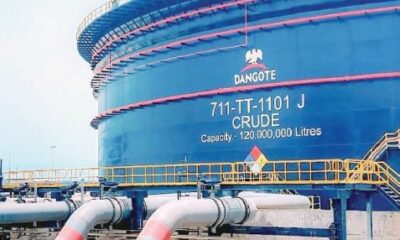
 BIG STORY3 days ago
BIG STORY3 days ago
 BIG STORY4 days ago
BIG STORY4 days ago
 BIG STORY2 days ago
BIG STORY2 days ago
 BIG STORY4 days ago
BIG STORY4 days ago






